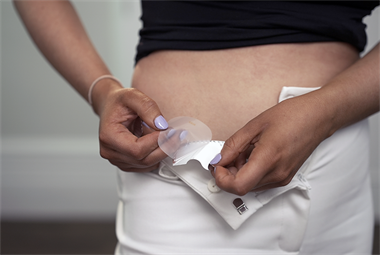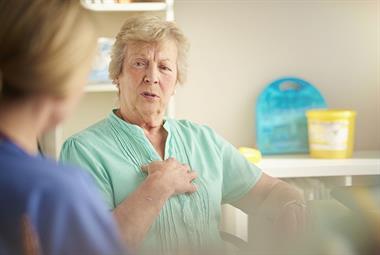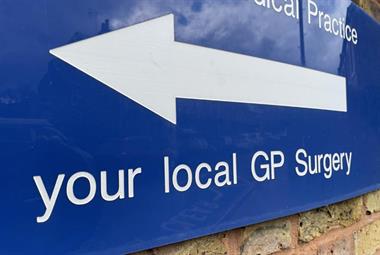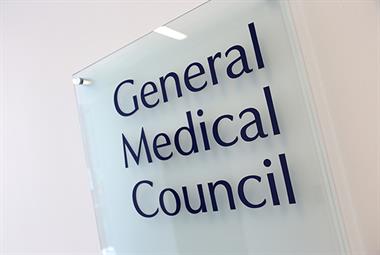Shared decision making has been described as a cornerstone of patient-centred care,1 ensuring that the patient and clinician work together to make the best healthcare decision for the individual. This collaboration considers medical evidence presented as a set of options that is introduced in an accessible way, and the patients’ preferences and beliefs.2
While the benefits of shared decision making have been well documented for decades,3 adoption into routine clinical decision making has been slow, with guidance about how to accomplish the approach only recently published.2
The only way to truly achieve women-centred care
In women’s health, it is particularly important to champion shared decision making. High rates of misdiagnosis, myths and misperceptions about conditions, as well as barriers to dialogue with the healthcare practitioners due to the sensitive nature of some conditions,4,5 can often leave women in the dark when it comes to decisions about their health and treatment.5
Shared decision making represents an important shift in the roles of both women and clinicians. It is important to raise expectations of women having an active role in determining the best care for them, based on their individual needs, values and preferences.
Patient choice at the centre of treatment decisions
Shared decision making puts the patient at the heart of all decisions, allowing them to advocate for their own health. Studies show how this can help in medical fields, such as oncology, where shared decision making has been associated with greater confidence in treatment decisions, treatment satisfaction, better mental health and self-efficacy, and greater trust in the healthcare provider.6
In many medical conditions in women, there are often a number of external factors, such as the burden of caregiving or societal taboo, that can impact the translation of a clinical decision into treatment. These should be fully explained and where reasonable and relevant to clinical situations, women should be enabled to deliberate carefully.
It is positive to see clinical practice and guidelines starting to shift over recent years with more emphasis on the importance given to individual preferences in determining healthcare decisions.
Addressing needs and concerns of women – from diagnosis to treatment
Shared decision making can play a role at most interaction points throughout the patient pathway - from point of presentation at a clinical practice to diagnosis and counsel on therapeutic options. This is crucial for certain women’s health conditions such as heavy menstrual bleeding, where the average time it takes to get a diagnosis from first speaking to a healthcare professional is 3.3 years.7
By providing women with better education via awareness campaigns targeting different communities, they will be encouraged to seek help. Equally, providing clinicians with relevant and up-to-date information is crucial, so that when women present with symptoms, the conversations between patient and clinician are productive and satisfactory for both parties. Improved education and knowledge could make a considerable difference, especially in situations where barriers may prevent women from clearly communicating the impact their condition has on their lives.
Promotion of the information and tools to support women to take part in shared decision making is also an important consideration. All these steps can be done as early as the first conversation at the clinic.
About Hologic
Hologic, Inc. is a global medical technology innovator primarily focused on improving women’s health and well-being through early detection and treatment.
For more information please write to: Hologic Ltd., Heron House, Oaks Business Park, Crewe Road, Wythenshawe, Manchester M23 9HZ or email: EUInfo@hologic.com.
References
- Contemporary OB/GYN. Why shared decision-making matters more than ever. Available from: https://www.contemporaryobgyn.net/view/why-shared-decision-making-matters-more-than-ever [last accessed 16 December, 2022].
- NICE. Shared decision making. Available from: https://www.nice.org.uk/about/what-we-do/our-programmes/nice-guidance/nice-guidelines/shared-decision-making [last accessed 16 December, 2022].
- Emanuel E and Emanuel L. Four Models of the Physician-Patient Relationship. JAMA 1992; 267(16): 2221-2226.
- Better for Women. Royal College of Obstetricians and Gynaecologists. 2019. Available from: https://www.rcog.org.uk/about-us/campaigning-and-opinions/better-for-women/ [last accessed 05 September, 2022].
- Thompson J and Blake D. Women’s Experiences of Medical Miss-Diagnosis: How Does Gender Matter in Healthcare Settings?”. Women’s Studies Journal 2020; 34:28.
- Kane H, Halpern M, Squires L, et al. Implementing and evaluating shared decision making in oncology practice. CA Cancer J Clin 2014; 64 (6):377-388.
- Survey of 2,000 Women aged 18-55 plus top up 1,000 UK women who have heavy menstrual bleeding during October 20th - 27th 2022. Hologic data on file. MISC-08708-GBR-EN
ADS-04052-GBR-EN Rev 001











.jpg)
